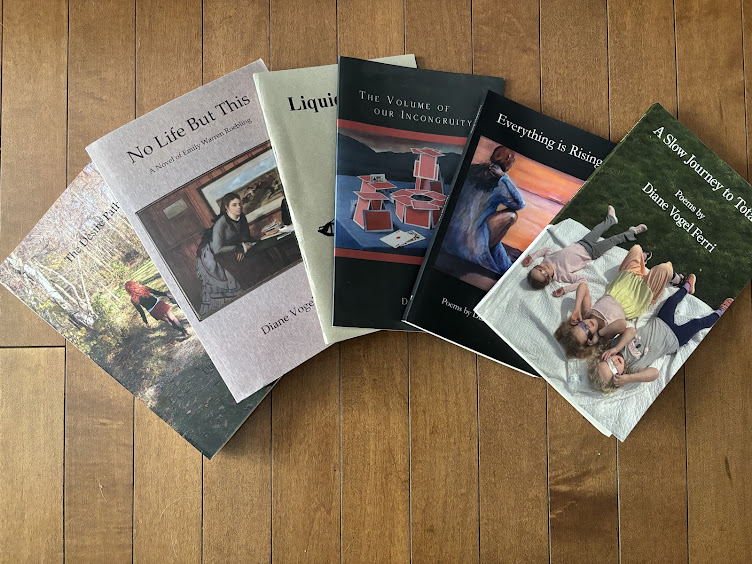Euclid Beach Park was an amusement park in Cleveland from 1895-1969
The Collinwood area was unfamiliar to me when my daughter and I headed there to attend a concert at the Beachland Ballroom. I drove right past Waterloo Road and had to pull in somewhere to turn around. I looked up to see a very familiar sight and said, “Oh! We’re at Euclid Beach!”
Seeing the Euclid Beach Gateway Arch prompted me to ask my dad to tell me more about his summers living in what was called Tent City at the park. I had heard so many stories about Euclid Beach throughout my life, but I never completely understood why my father, his sister and my grandparents had lived there from April to October for seven consecutive years in the 1930’s.
“Did you really ride your bike down the Flying Turns after the park closed?” I thought maybe I had misheard this familiar story from my own childhood because it now seemed implausible.
“No, I had a sled with wheels for that,” Dad answered, “I rode my bike down the Racing Coaster, but only once.”
“How do you ride a bicycle down a roller coaster?”
“On the wooden slats between the rails,” he replied as if that would be obvious to anyone.
In 1933 when my dad was 10 years old, he contracted osteomyelitis, a inflammation of the leg bone caused by an infection. He almost died from the fever and was packed in ice while in a coma to bring the fever down. Part of the bone was removed and he was bedridden for over a year of his boyhood.
At that time my grandfather worked for City Ice and Fuel, located at Superior and Euclid, delivering huge blocks of ice. (Dad said that in the summer children would run after the truck picking up the chips of ice that fell off for a cold treat.) After Dad’s hospitalization my grandmother went to work there also to help out financially, taking coal orders.
My father’s lower lip trembled as he told me of a nurse who came to his home to take care of him while his parents worked. She was also a certified teacher, and although she was to be married soon, she delayed her wedding for five months so Dad could finish the school year at home. Years later he would graduate from Cleveland Heights High School only a half year behind his classmates because of her generosity.
“I think I fell in love with her,” he said with tears filling his eyes.
As Dad recovered the doctors told my grandparents that he needed as much exercise as possible. There were not many opportunities for sports on the busy side streets of Cleveland Heights in the 1930’s. So they rented their house out to a professional golfer for the season and took up residence in a large tent on the grounds of Euclid Beach Park. The tents had electricity but no running water. There were communal water pumps, bathrooms and showers. My dad played baseball and tennis and roller-skated every day. He played kick-the-can and badminton with the other children. He swam at the pool and the beach on the shore of Lake Erie.
When I was growing up, no matter what sport or game of skill was being played, everyone wanted to be on my dad’s team. He was good at everything, and considering these childhood years, I understand why. When he was eleven years old the man in charge of the Euclid Beach skee-ball gave Dad the job of retrieving the balls thrown out of the alleys. If he would crawl in the dirt and dust to get them he was allowed to throw for free. When he was 15 he got the job of running the skee-ball alleys. He always claimed to be the reigning Northeast Ohio Skee-Ball champion because he won the title the last year the contest was held. It’s a long-running family joke.
“Because of the osteomyelitis,” he said, “I was behind in school and then I was deferred stateside in the Navy during World War II. If you had the disease they wouldn’t let you lead a battalion because they thought your leg would break. Now it would be different. They would know better now...” My father never got over not being able to serve his country overseas during the war but we are all proud of the four years he served in the Navy.
Of course, like so many Clevelanders, I have my own memories of Euclid Beach Park;
The custard and popcorn balls, being terrified of Laughing Sal, the old-fashioned calliope music filling the park. There were old-timers still working there that remembered my father. My neighborhood has rented a Euclid Beach Rocket Car on the Fourth of July. As we fly down the side streets, I wonder if I’d ridden in the same car so many years ago as a child.
My grandparents took my brother and I to our last visit to the park in 1969. By then it was run down and deserted. I remember feeling sad knowing what a special place it was to Dad. Now I can take my grandchildren on the restored Euclid Beach Grand Carousel at the Western Reserve Historical Society—something my father didn’t live quite long enough to ride on again—passing away only weeks before it opened in November 2014 at age 91.
I never imagined I would feel so connected to a place that no longer exists. Sadly, it lives in the memories of fewer and fewer Clevelanders as the years go by. It was a place that brought joy to countless families. A place that helped heal my father.

No comments:
Post a Comment